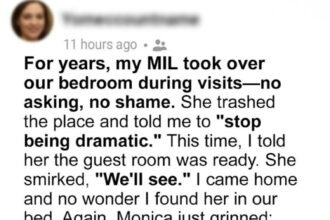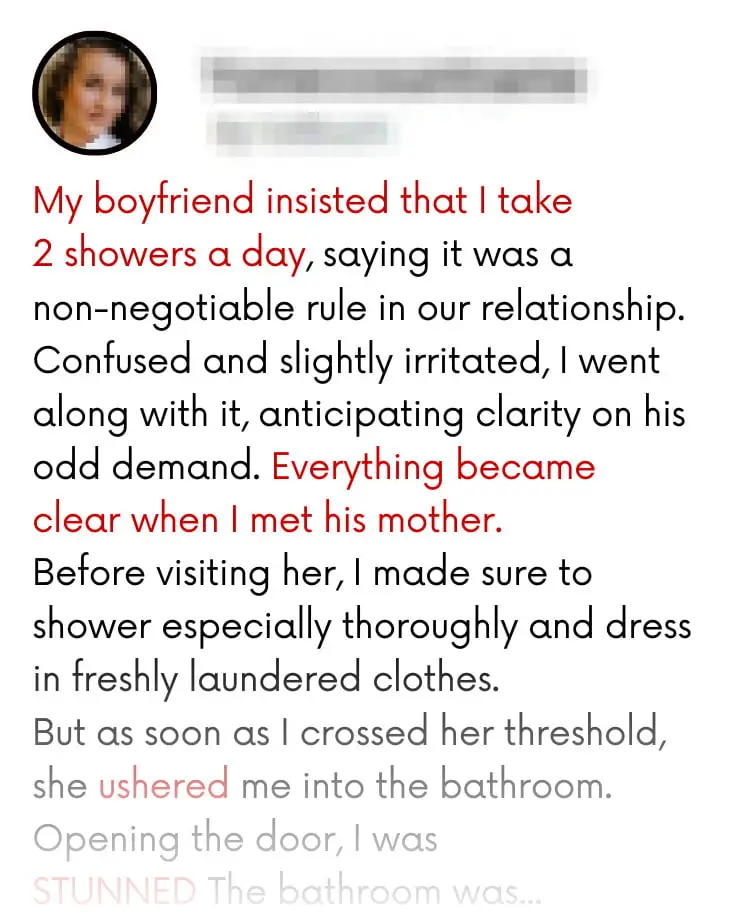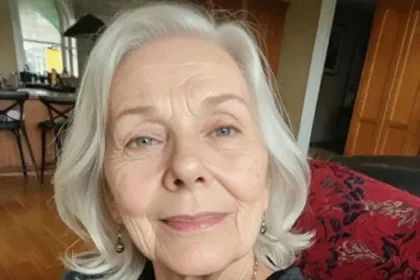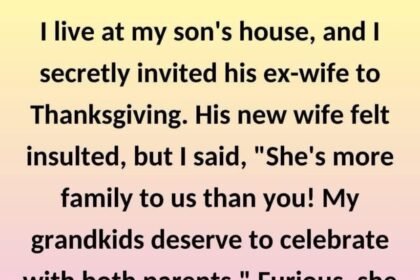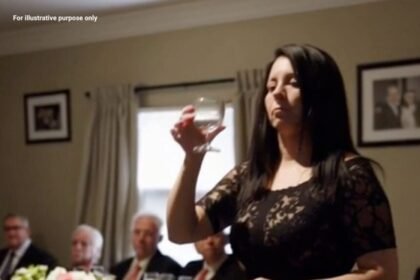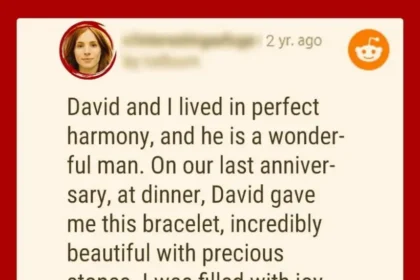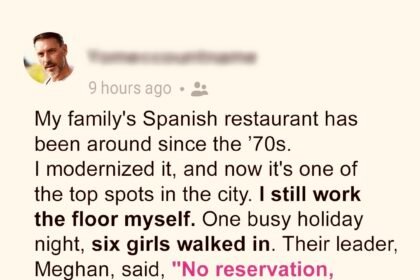The dinner with Jacob’s family continued in a formal, almost scripted manner, until an unexpected turn of events led me to a quiet corner of the house—Eloise’s bedroom. Eloise, Jacob’s sister, had always seemed like the outlier in the family, with a kind of gentle defiance in her demeanor.
Her invitation to escape the strained atmosphere of the dinner was a welcome respite, and I followed her, eager for a moment of reprieve.
Once in her bedroom, a sanctuary of calm and comfort, Eloise turned to me with a look of concern and empathy that I hadn’t encountered in anyone else from the family.
The room, filled with books and personal mementos, reflected a life of independence and quiet rebellion.
It was here, amidst the soft lighting and the distant sound of the dinner party, that Eloise shared with me the peculiarities that lay at the heart of the family dynamics.
“Sophie,” Eloise began, her voice steady yet filled with a hint of frustration, “what you experienced tonight isn’t about you or any real issue with hygiene.
It’s about them.” She gestured vaguely in the direction of the dining room, her expression one of resigned understanding.
Eloise went on to explain the unusual and somewhat eccentric beliefs that pervaded the family ethos, especially between Jacob and their mother, Nancy. “They have this strange notion of possessing super senses,” she confided, her words painting a picture of a family dynamic steeped in bizarre convictions and an almost conspiratorial sense of superiority.
According to Eloise, Jacob and their mother believed they could detect nuances and flaws imperceptible to others, a belief that had often isolated them from reality and rationality.
As Eloise unfolded the layers of her family’s eccentricities, I felt a mixture of relief and anger.
Relief, because her words validated my growing suspicion that the issue was never really about me or any actual problem with my hygiene.
And anger, because I realized the extent of the manipulation and psychological games at play, masked under the guise of concern and familial closeness.
The decision to end my relationship with Jacob was not made in haste. It was the culmination of countless moments of self-doubt, confusion, and realization.
The idea that I had allowed myself to be manipulated into questioning my own hygiene, based on a bizarre notion held by Jacob and his mother, was both humiliating and enlightening.
The manipulation was subtle yet pervasive, and it had seeped into the very fabric of our relationship, distorting my self-perception and eroding my confidence.
Making the decision to leave Jacob was like lifting a veil from my eyes.
It was a definitive step towards reclaiming my autonomy and self-worth.
The conversation in which I communicated my decision to him was both liberating and heartbreaking.
Liberating, because I was finally breaking free from the web of deceit and control; heartbreaking, because it marked the end of a chapter in my life that, despite its challenges, had once been filled with promise and affection.
In the wake of the breakup, my life took on a new direction.
The initial days were marked by a sense of loss and reflection, but gradually, the fog of confusion and hurt began to lift. I found solace in activities that I had neglected during the course of my relationship with Jacob.
Reconnecting with old friends and engaging in social activities reignited a part of my soul that had been dimmed.
The process of rebuilding my life after Jacob was both challenging and invigorating.
I immersed myself in new experiences, meeting people who appreciated me for who I was, without the shadow of unreasonable expectations.
Each new friendship and every moment spent in laughter and genuine connection contributed to a growing sense of self-assurance.



